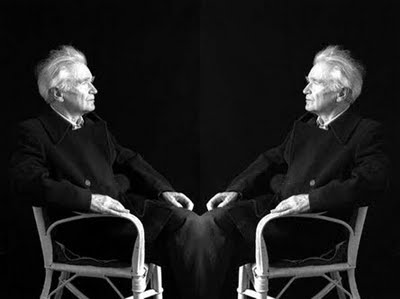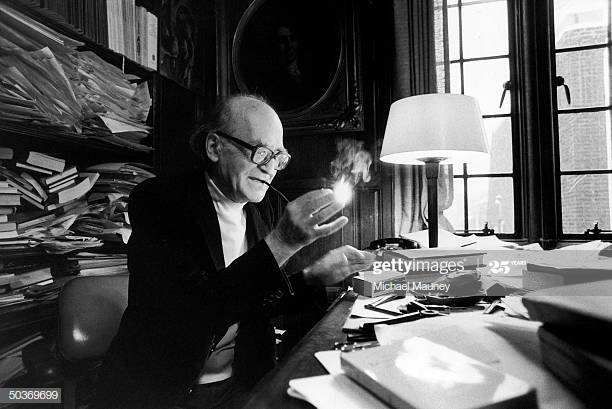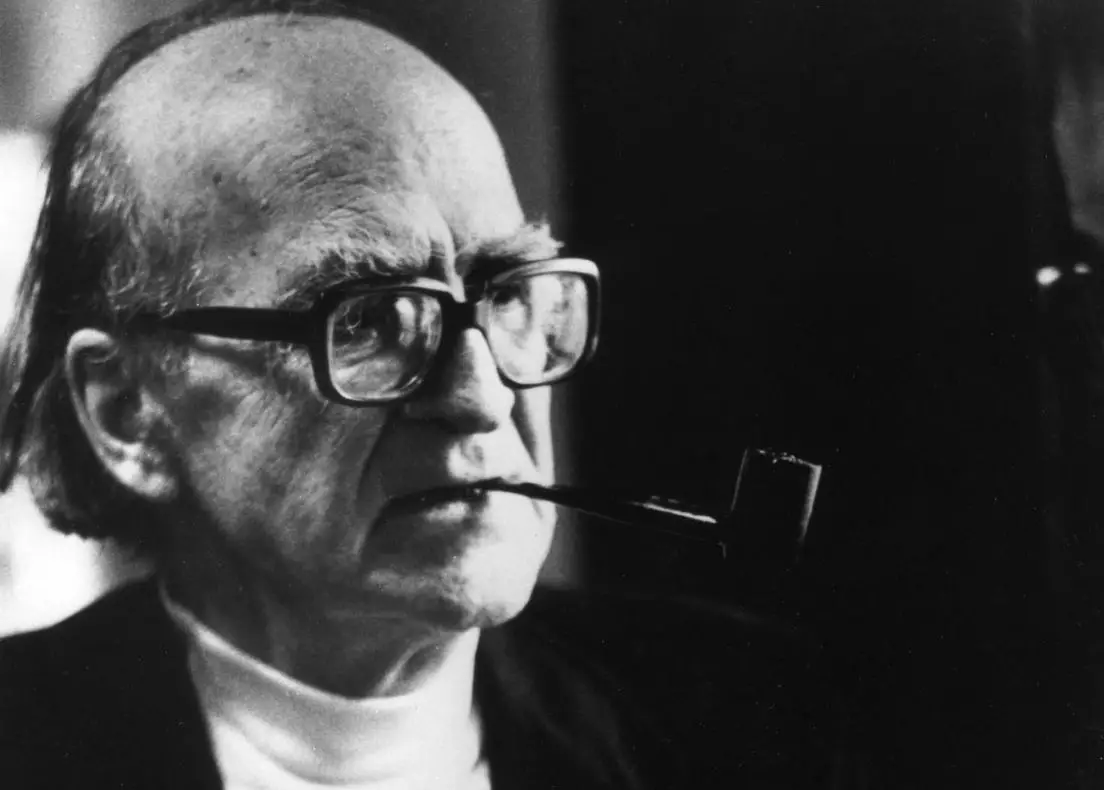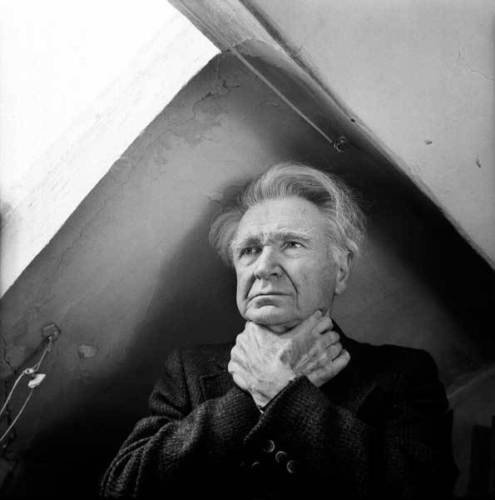A damn human correspondence, essential these days, revealing a secret complicity between two complementary souls of the great Romanian generation in exile: the historian of religions Mircea Eliade and the nihilist philosopher par excellence, Emil Cioran, born on April 8, 1911.
di Lorenzo Pennacchi
There are books that do not leave indifferent, so much so as to be cathartic, especially if received in gift. Readings that pierce our hearts as readers, writers or, more essentially, human beings. Light A secret complicity it was this. Written from the life of the protagonists, this text allows us to become accomplices, through the understanding of Eliade's maxim: "I believe that a book written in freedom (like ours of the past) can only induce reflection on those who read texts written according to imposed rules" [1].
In a historical moment that there compels to question ourselves, rediscover these two extraordinary protagonists of the twentieth century, leading exponents of great Romanian generation in exile [2], through their correspondence, it is therefore a privilege. One hundred and forty-six letters [3] preserved over fifty years, accompanied by a meticulous critical apparatus, revealing a relationship deep, fueled both by support (in all its forms) and by criticisms (including public ones). Thus Cioran in December '35: «Although I have an infinite and not denied sympathy for you, at times I feel the desire to attack you, without arguments, without proofs and without ideas. Whenever I have had the opportunity to write something against you, my affection has increased " [4].

The founding act of this fruitful parallelism is precisely one criticizes by Cioran, with his article The man without destiny in October 33. The two had met the previous winter, during a lecture on Rabindranath Tagore given by Eliade a Bucharest. We follow the reconstruction of Horia Corneliu Cicortas [5]:
"Eliade has recently returned from a three-year stay in India, where he dedicated himself to study of yoga, tantrism and Indian alchemy. She is twenty five years old. Cioran has almost twenty-one: a difference that undoubtedly carries a certain weight at the time, magnified by Eliade's "exotic" aura and precocious, polygraphic essay production. On the contrary, the young Transylvanian - who is about to graduate in philosophy with a thesis on Bergson's intuitionism -, after a first article that appeared in February 1931, has published very little, and is still semi-unknown for the Bucharest intelligentsia, even if for his age, as Eliade will remember in the book-interview La prova del labirinto (1978), he shows "an exceptional philosophical and literary culture", and has a strong stylistic mastery. "
THEpublic attack di Cioran is driven by private motivations, so much so that he presents himself, second Massimo Carloni, like "a settling of scores" [6]. In those few months of acquaintance, in fact, Eliade had compromised himself twice: the first for having directly criticized Cioran in his Letters to a provincial, condemning his excessively negative view of life; the second for having seduced and cowardly abandoned Sorana Topa, a mutual friend of theirs. In the article Cioran contrasts Eliade with himself, without ever naming him [7]:
"You do not become a "chance", nor do you represent an authentic destiny, without certain dark areas, so dark as to shine in burning darkness, with a depth so dazzling and infinite as to make you dizzy. These areas must be persistent, they must constitute the premises of being. This explains why certain fears become exasperating in some individuals, why they cannot solve their crucial problems, why they die of all obsession.. "

The instinctive and tormented Cioran accuses the one who will become one of the greatest historians of Religions not to possess such virile pessimism, That inner metaphysical center of gravity, necessary for have a destiny, for to be religious, living in depth and not only in extension [8]. The greatness of this correspondence derives from the brutality of the premises, from the capacity for confrontation and evolution of the protagonists.
«My tragedy - writes Cioran in the aforementioned letter of '35 - stems from the fact that I am an irreligious man, just like you. We do not have the courage of our distance from the world " [9]. The previous accusation becomes understanding and commonality. The impression, reading the first letters of the young Emil, is that of the search for asimilar soul, albeit different, with which to share one's destiny or hers unavoidable absence [10]:
"From the most imperceptible of sensations to the widest revelation, everything seems to me to move in a religious dimension. If the last of the sensations cannot be defined as a religious epiphany, then I will prolong my absence in the space that extends between earth and sky. Thinkers who fail to conceive of heaven seem sterile, lukewarm, illegible to me. Having overshadowed the problem of salvation, modern thinking is forever compromised. I can't read philosophers anymore and I don't think I'll ever be able to read them again. Anything that is not poetry, mysticism or music is betrayal. "
These are not high-sounding words, but real ones obsessions that Cioran will carry with him forever, reformulating them according to the period. In May '42 he wrote that, considering "degradation everything that is not poetry" [11], Its unique fear is to have no more poets to discover. Again, in one of his last letters, in December '81, he claims to feel at home "only by listening to music, and more precisely Brahms, my last god" [12].

Let's go back to the XNUMXs. Eliade, from university assistant and just married to Nina Rares, has more awareness of his place in the world, seems to accept its limits more easily, detaching from the political sphere. After all, "you - the friend accuses him - have the refuge of Asia, I only that of the West" [13]. Several times Cioran claims his European and Romanian identity, but this principle, like all the others, is destined to falter: “Western thought disappoints me more and more, it gives me nothing; on the other hand, it may be that I have too many illusions about the oriental one. Indeed, it is safe " [14], will confide in '66.
Yet, it is politics that takes Mircea back, without your permission. In July 38 he was arrested for a few months, accused of supporting the Legionaries of Corneliu Zelea Codreanu. Released from prison, he held diplomatic posts for his country before London and then to Lisbon, throughout the war period, irreversibly compromising his detachment from the world and its pragmatic values. In 42 he bitterly comments: «I think it is too late to regain my autonomy in the Indian way. I hope at least to achieve a balance within Europe " [15].
At the end of the conflict, he was widowed and remarried with Christinel Cottescu, despite living in contingency and at the height of his career, he tries to regain possession of his essential dimension, through a ten-year journey: «I hope that you too, like me, do not read the newspapers. You have gardening, I have philately - and we both have a weakness for Mahāyāna, for Aeschylus and Pindar […] What else are we missing? " [16].

From '45 to '56 the correspondence, with the exception of sporadic travels, is almost non-existent, given that the two are fellow citizens Paris, unable to return to the "now Sovietized" homeland [17]. In October 56 Mircea moved with his wife to Chicago and the following year he accepted the position of professor at the university. The American one is a terrain of confrontation at times bleak, as emerges from the description he gives to his friend in a letter of '57: «a kind of city in the Romanian province (like Olteniţa or Giurgiu), deserted, without gardens, without trees, gray, dirty. I was wondering why the inhabitants didn't commit suicide " [18].
While over the years the social situation will only worsen, culminating in the riots of '68 that will make Chicago "more dangerous than a city under bombing" [19], the personal one is marked by continuous successes. Eliade is tireless, his production is continuous, his merit is widely recognized. Cioran is crushed by it. While writing and receiving positive feedback, living with the partner Simone Boue when it comes to US Paris, never before is perceived as inferior to a friend. One of the most striking passages of their relationship is dated 23 April 63 [20]:
"When I think of your truly exemplary activity and your fruitfulness, my condition appears to me so painful that I cannot think about it without shame or regret. They are certainly not the same gods who presided over our destinies. I am devoted to sterility, to the fragment, to the sketch. So far I have managed to disguise my shortcomings; will it be the same in the future? I doubt it. You cannot imagine to what extent it all seems impossible and unachievable to me. In reality, I am losing the low confidence I had in myself, if I have not already lost it. Everything weighs on me, everything tires me. Writing seems to me an inconceivable activity, a flagrant and senseless infringement of the certainty I have of universal inanity. I have undermined all my illusions, I have mocked them, and now I am forced to live my sarcasm, to draw the practical consequences - victim of a laughable vision. I am in the full of wisdom, as I no longer live in a conflict with my ideas. How I regret the times when a well-crafted sentence consoled me for any failure! But what is the point of continuing to complain? We should be able to pray. "
The apostille, aimed at defusing these words, must not be misleading. These are passages like these that outline "the incompatibility between the will to know, to accumulate knowledge in the most disparate sectors, typical of Eliade's encyclopedic genius, and the tragic spirit of Cioran" [21]. The ability "to attack every topic to the point of despoiling it" [22] of the former, the excruciating obsessions of the latter, its daily nagging, capable of converting what was mere intellectual play into fatality: «In the end - he wrote in '67 - I embody what before I only touched, I managed to to convince myself" [23].
Yet, it is precisely the differences that bring these two characters closer, because they require one from the other ability to understand and support unknown to superficial relationships. Over the span of half a century, opinions, books (an infinite quantity!), Favors and even economic aid are exchanged; they share contexts and people, like the friend Eugène Ionesco; they are carried out in different times and ways. They are both fundamental to try to appease the exaggerations of the other, the more pessimistic ones of Emil, the too vitalistic ones of Mircea, although they do not always succeed.

Eliade is a force of nature, foreign to the blocks of Cioran, unable to slow down even when everyone tells him to stop given the progressive health problems. In a letter of '35 he said that he had questioned the "apocalyptic end of our age", Which should have occurred within a few decades, arguing how it was" delightful that, despite being aware of such things, I can still deal with culture and literature - rather than just contemplating, or immediately running away to Asia " [24]. As time passed, instead of fleeing to the East, he had decided to live in his way all of the West, so intensely from appropriate one's own final destination, in the face of Cioran [25].
In May '69, commenting enthusiastically The fatal demiurge, had tracked down a symbolic parallelism with his ever dear Emil: "Two Romanians of the 'young generation', thrown by fate in the West, simultaneously elaborate, one, the most precise autopsy of Christianity, and the other, the most desperate attempt to revive it through history comparative of religions' " [26]. It is the ultimate meaning of theirs secret complicity, so essential as to manifest itself unconsciously, but in an incontrovertible way, just before the end [27]:
"On the last day of his 'conscious' life, Eliade is at his home in Chicago. Sitting in his favorite reading chair, he asks Christianel to bring him Cioran's Exercises of Admiration, a freshly printed book, which also contains his portrait. Shortly thereafter, his wife looks back into the study and sees Mircea smiling with the book in her hand. Thinking of a joke, she calls him once, twice, but in vain. Eliade has lost consciousness, and is rushed to the hospital. He will die two days later, without regaining consciousness. Destiny would have it that the book of his friend Cioran, with his merciless but brilliant portrait, was the last thing Eliade read in life. "
To my Claudia,
A little Mircea,
A little bit Emil.
Note:
[1] Letter from Eliade to Cioran, 29 December 1967, in EM Cioran, Mircea Eliade, A secret complicity, Adelphi, Milan, 2019, p. 110.
[2] That generation that, after the war, "spread from Romania all over the world". Adolfo Morganti, The miracle of a generation in exilein Antares no. 7, The Romanian paradox - Eliade, Cioran and the "young generation", Bietti, 2014, available in digital format here: http://www.bietti.it/riviste/il-paradosso-romeno-eliade-cioran-e-la-giovane-generazione/
[3] Fifty of Eliade, ninety-six of Cioran. Eliade's are written in Romanian, while Cioran's are in Romanian until 58 and then, almost always, in French. Translations from Romanian are by Horia Corneliu Cicortaş, those from French by Massimo Carloni. Cf: Cioran, Eliade, A secret complicity, pp. 261-262.
[4] Letter from Cioran to Eliade, 25 December 1935, in ivi, p. 21.
[5] Horta Corneliu Cicortas, Intertwining of parallel lives, in ibid, p. 267.
[6] Massimo Carloni, The archivist of the sacred, in ibid, p. 282.
[7] Emil Cioran, The man without destiny, in ibid, p. 192
[8] See: Carloni, in ivi, p. 283.
[9] Letter from Cioran to Eliade, 25 December 1935, in ivi, p. 21.
[10] Letter from Cioran to Eliade, December 1935, in ivi, p. 19.
[11] Letter from Cioran to Eliade, 8 May 1942, in ivi, p. 47.
[12] Letter from Cioran to Eliade, 24 December 1981, in ivi, p. 178.
[13] Letter from Cioran to Eliade, 9 December 1935, in ivi, p. 18.
[14] Letter from Cioran to Eliade, 7 May 1966, in ivi, p. 96.
[15] Letter from Eliade to Cioran, January 4, 1942, in ivi, p. 46.
[16] Letter from Eliade to Cioran, in ivi, pp. 97-98.
[17] Cicortaş, in ibid., p. 272.
[18] Letter from Eliade to Cioran, in ivi, p. 61.
[19] Letter from Eliade to Cioran, in ivi, p. 119.
[20] Letter from Cioran to Eliade, April 23, 1963, in ivi, pp. 78-79.
[21] Carloni, in ibid, p. 284.
[22] Carloni, in ibid, p. 285.
[23] Letter from Cioran to Eliade, 10 January 1967, in ibid., P. 103.
[24] Letter from Eliade to Cioran, November 1935, in ivi, pp. 15-16.
[25] In the 1986 obituary Cioran reproaches the criticisms leveled at Eliade in '33, when he accused him of dealing with religions without having a religious spirit. There are several passages in this text that suggest the recognition of the final destination in the life of a friend. See: Emil Cioran, Finally a fulfilled existence !, in ibid, pp. 202-204.
[26] Letter from Eliade to Cioran, May 15, 1969, in ibid., P. 131.
[27] Carloni, in ibid, pp. 288-289.

4 comments on “That symbolic parallelism between Mircea Eliade and Emil Cioran"